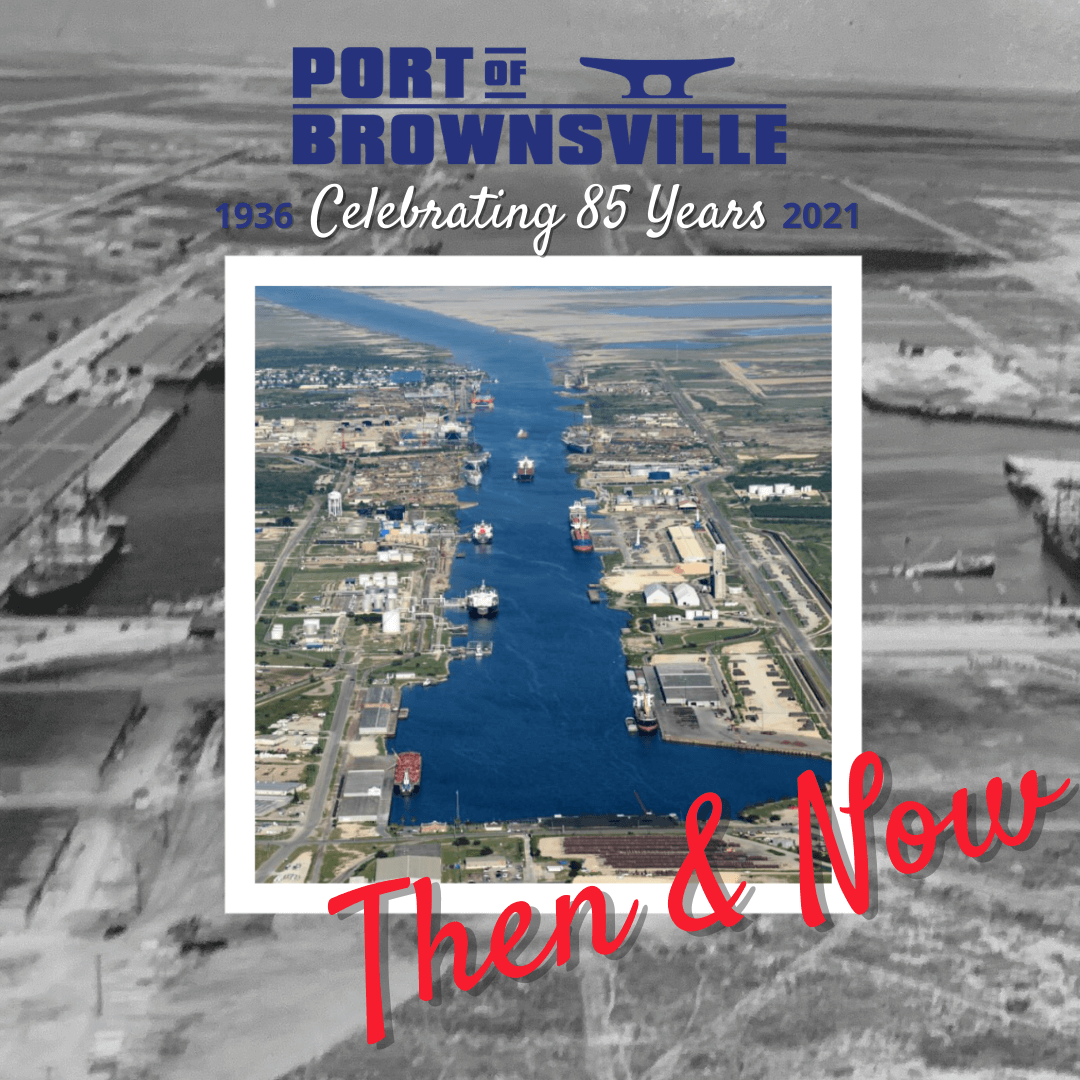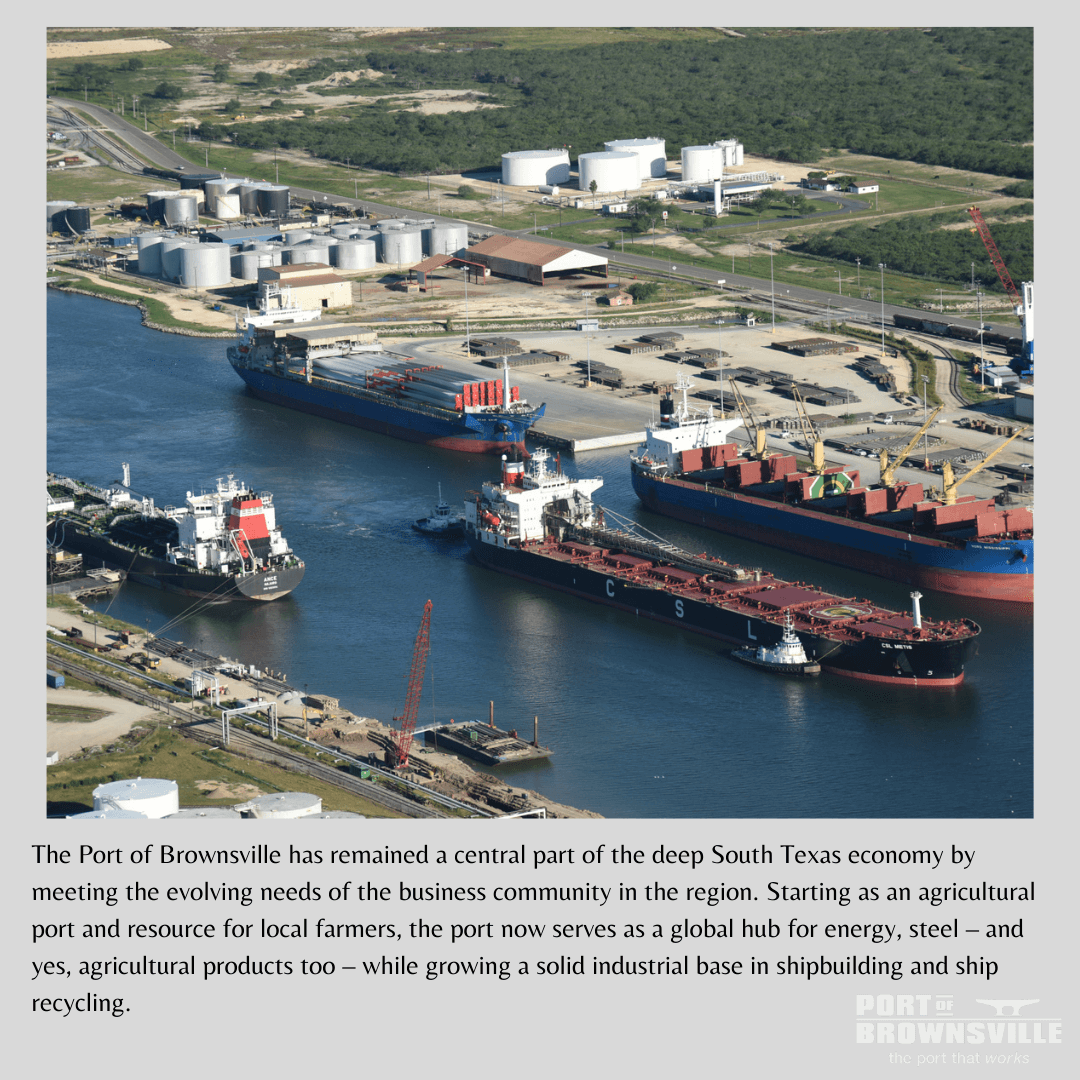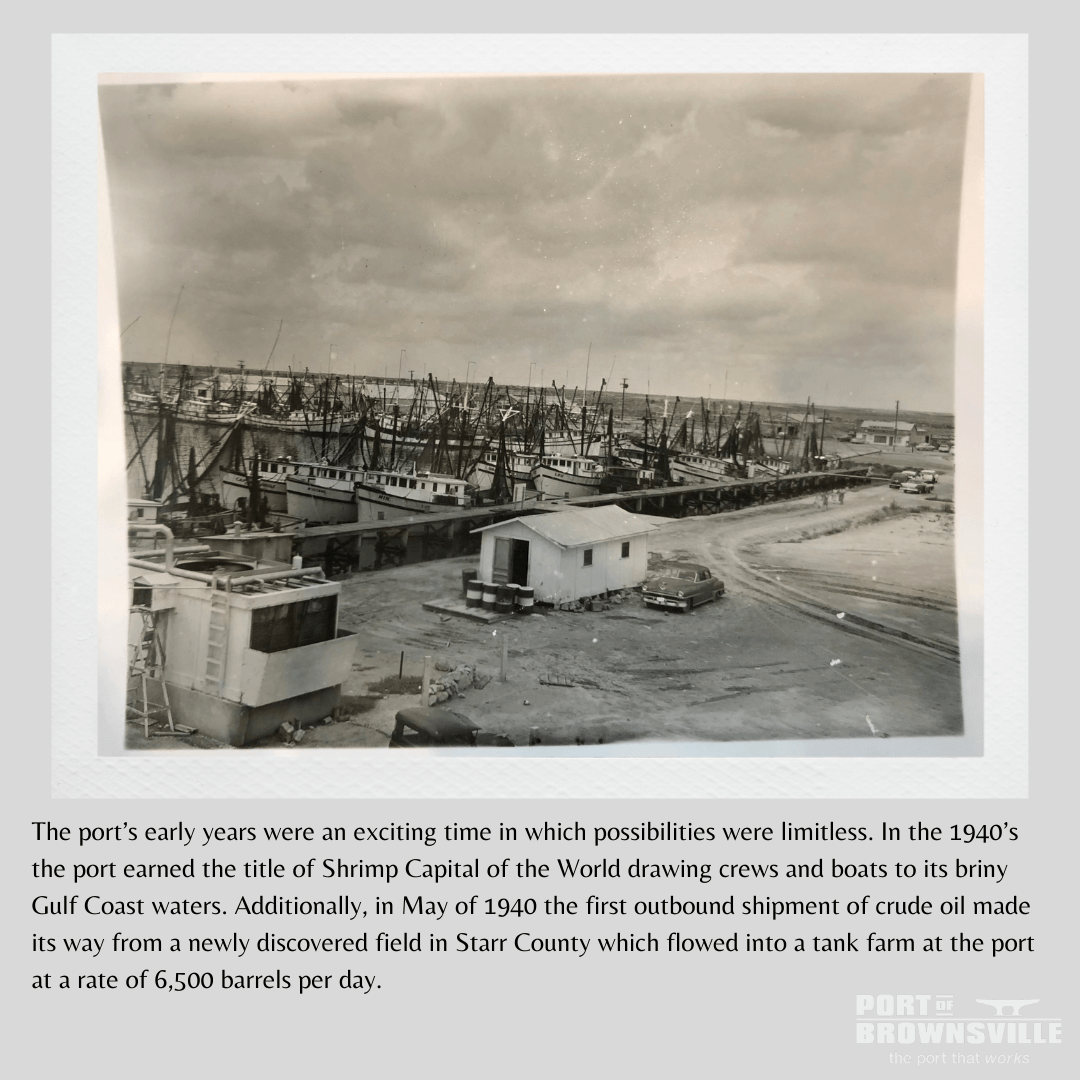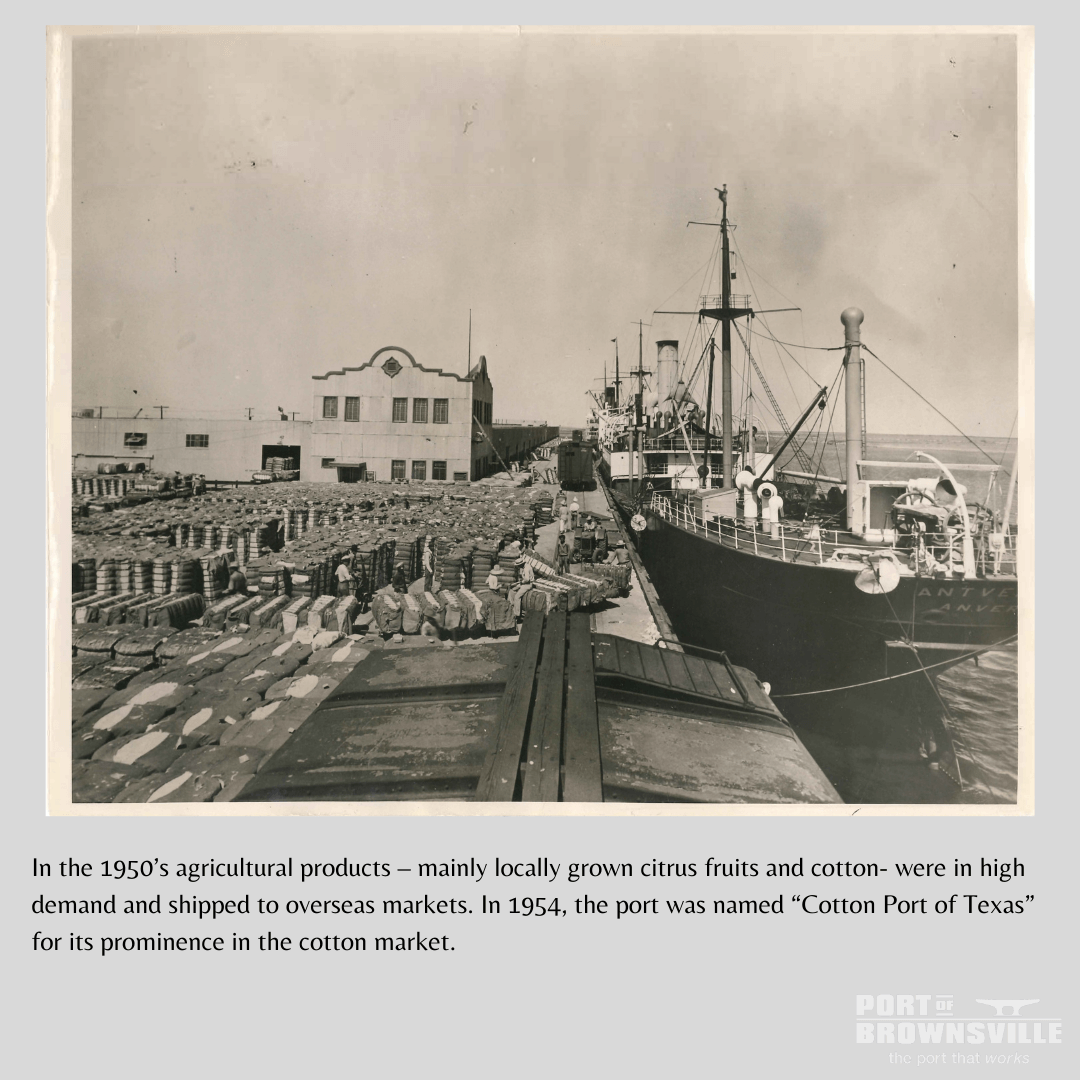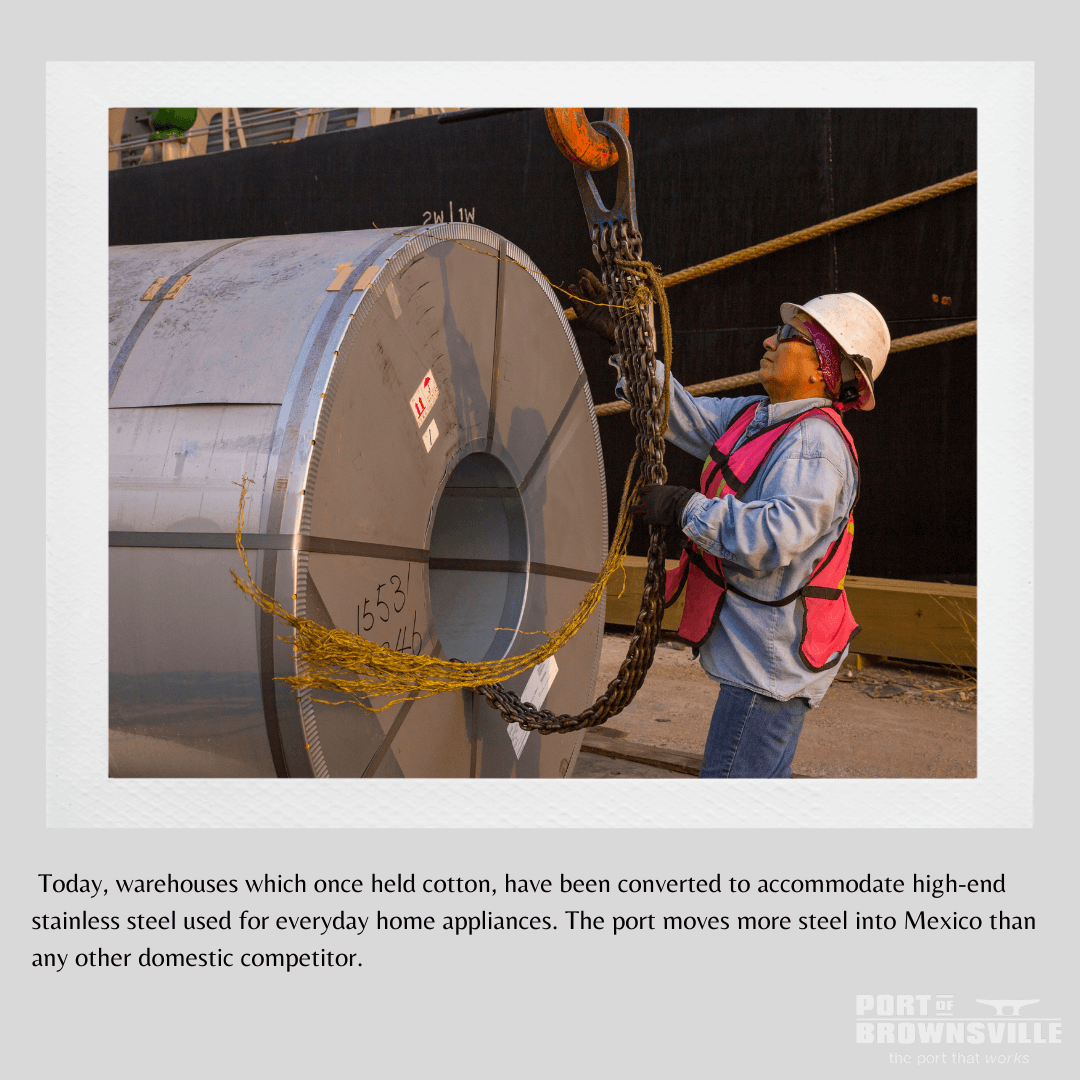International Shipbreaking, part of the world-leading recycler EMR Metal Recycling, has gained EU Ship Recycling Regulation (EU SSR) accreditation for its site at the Port of Brownsville after investing $30 million in compliant infrastructure.
The Brownsville site is the first U.S. shipbreaking site to achieve this accreditation. It can now help EU-based ship owners – as well as ships flying the flags of EU member states – to responsibly recycle their ships at end of life.
The regulations set standards for environmental and health and safety compliance which go above and beyond stringent US regulatory requirements. The International Shipbreaking facility meets EU requirements that ships are completely recycled on hard surfaces to avoid pollutants such as chemicals from paints contaminating the soil and water.
“We have just received and safely moored our first EU ship recycling project, the MT Wolverine,” said Chris Green, Senior Manager at International Shipbreaking Ltd. “There is a big future in this industry and, over the past year we have seen three times the number of inquiries from EU ship owners. This indicates the shipping industry is taking more responsibility for how their ships are recycled, rather than using the South Asian shipbreaking beaches.”
As of 2018, 90.4% of the world’s end-of-life vessels were broken up on the beaches of South East Asia in rudimentary conditions, according to the NGO Shipbreaking Platform. The EU SRR aims to help responsible ship owners clean up their act and make the shipbreaking industry greener and safer. Increasingly, banks and investors are unwilling to fund shipping companies who cannot prove that their ships are recycled responsibly.
International Shipbreaking has been safely recycling ships and marine structures since 1995, Green added. During this time over 100 vessels have been recycled, with an excellent compliance record.
“We have a corporate culture of safety compliance and our very experienced staff completes due diligence, including safety and environmental assessments, before we even make a bid for a project. This allows our team to accurately estimate the cost of hazardous material removal/disposal and the revenue we will receive for the recycled metals,” he said. “These ships contain extensive hazardous materials that require containment and removal. To think this operation could be conducted any other way is reckless and irresponsible. We hang our hat on compliance and providing our customers with a recycling service that they can be proud of.”
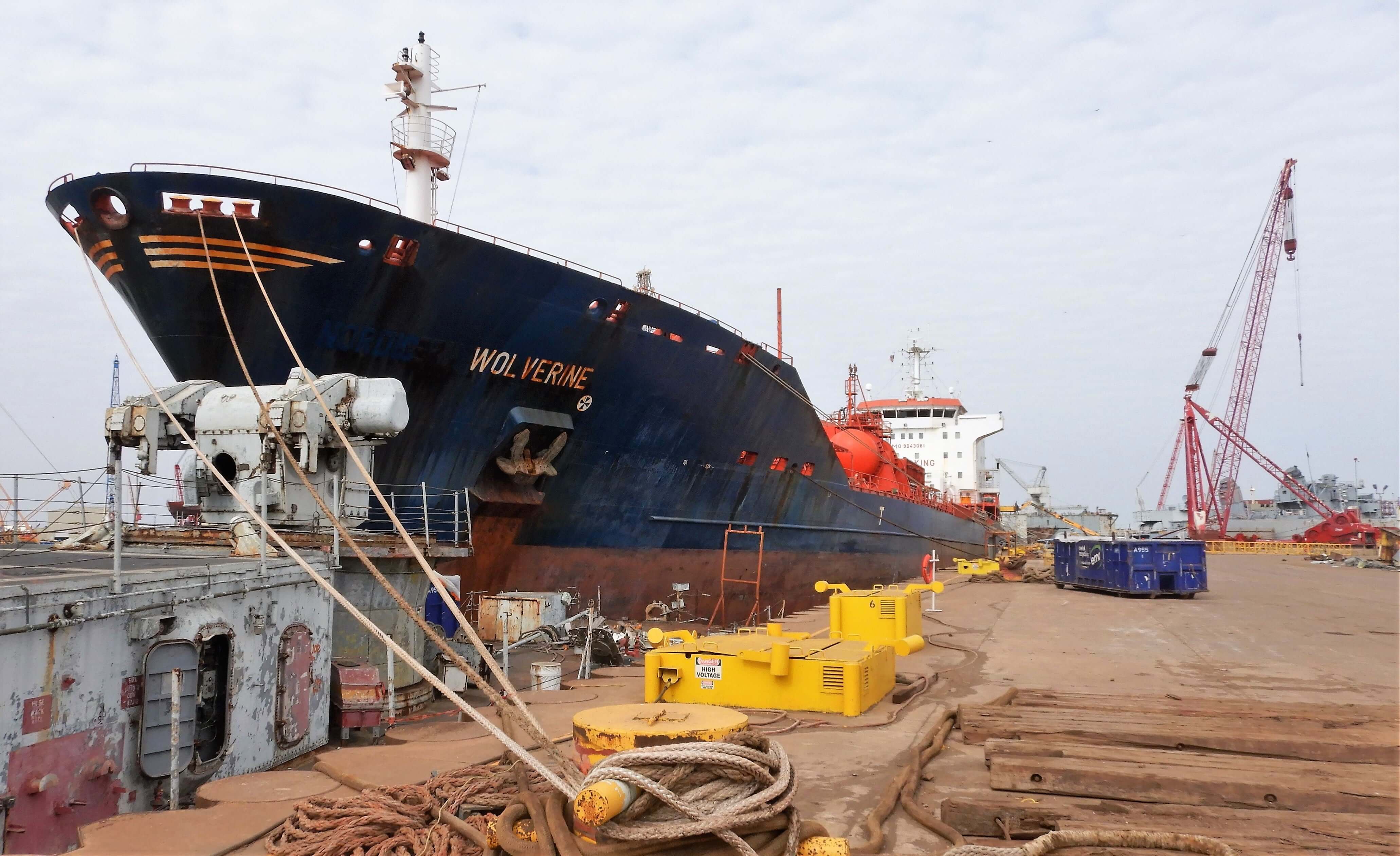
The MT Wolverine safely moored at International Shipbreaking’s yard at the Port of Brownsville.



